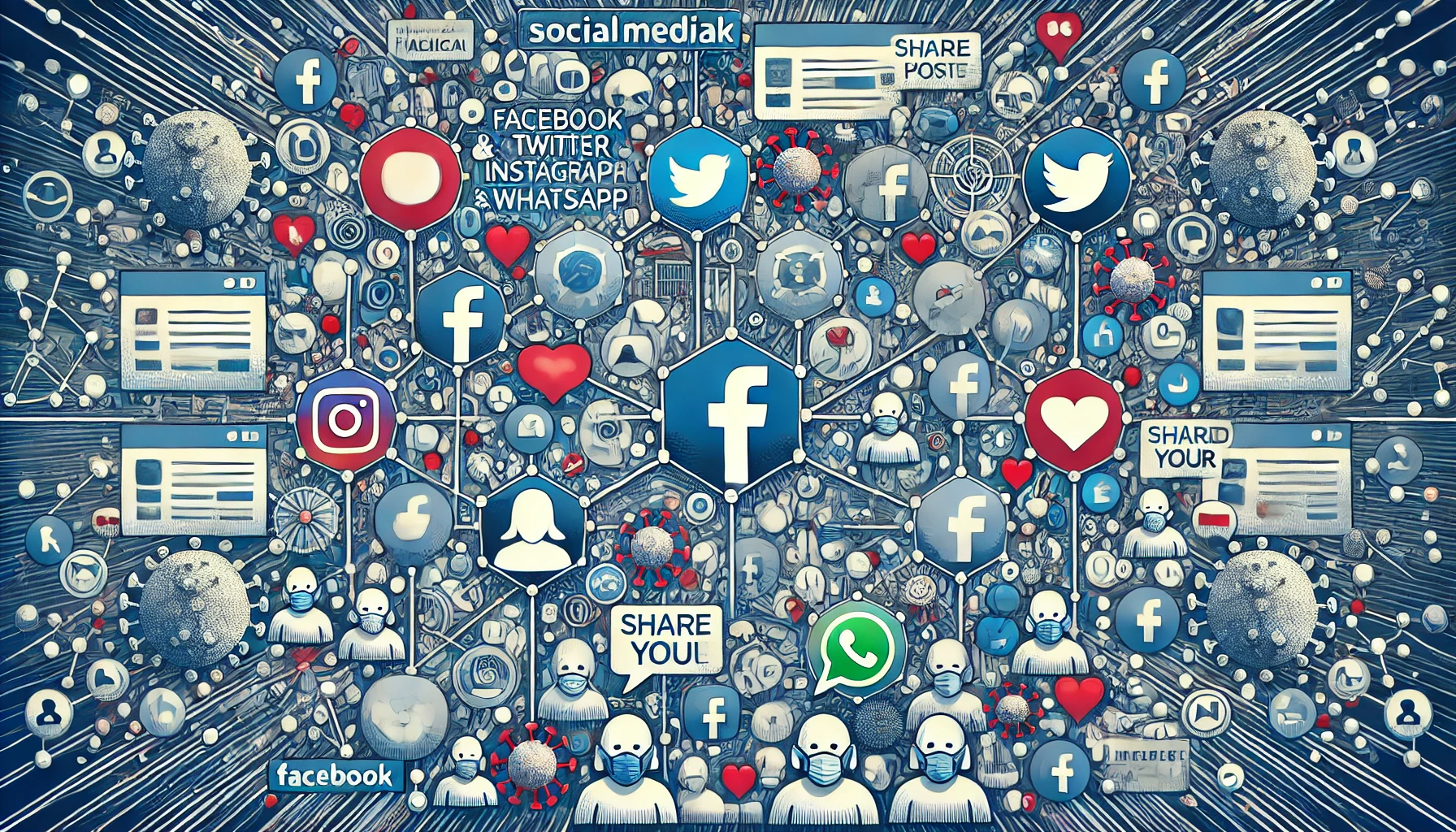The Influence of Social Media Dynamics on COVID-19 Fake News Dissemination
A study from Huazhong University of Science and Technology revealed that instant news sharing driven by socialization, entertainment, and altruism significantly contributes to the spread of COVID-19 fake news on social media. The findings emphasize the need for improved social media literacy and regulation to combat misinformation effectively.

During the COVID-19 pandemic, the spread of fake news on social media saw a dramatic increase, raising significant public health challenges. A study conducted by Bilal Mazhar, Jing Niu, Qinyue Zhong, and Inam ul Haq from the Journalism and Information Communication School at Huazhong University of Science and Technology, delves into the factors contributing to this phenomenon. Researchers surveyed 392 Pakistani social media users using a questionnaire to understand the dynamics at play. Their findings reveal that instant news sharing, driven by socialization and entertainment, significantly contributes to the dissemination of fake news. The study highlights that individuals often share information quickly due to the ease of use of social media platforms and their desire for social interaction and entertainment. Altruism also plays a role, where the intention to help others can inadvertently lead to the spread of misinformation.
Instant News Sharing: The Leading Culprit
The research used SPSS 26.0 for descriptive statistics, Pearson correlation, and regression analysis, along with Andrew F. Hayes' Process program for testing mediation and moderation effects. It found that socialization and entertainment act as mediators in the relationship between instant news sharing and the spread of fake news. Additionally, altruism moderates the impact of instant news sharing on fake news dissemination, reducing its effect when altruistic intentions are high. Employing rational choice theory, the study suggests that social media users make rational decisions based on the perceived benefits of socialization, entertainment, and altruistic behavior. This theory, initially posited by Adam Smith, explains that individuals make decisions to maximize their self-benefit, which, in the context of social media, includes the benefits of social interaction and entertainment.
The Role of Socialization and Entertainment
The study underscores the significant role of instant news sharing as the most substantial predictor of COVID-19 fake news dissemination. This finding aligns with previous research linking instant messaging to fake news sharing in other contexts. The research also confirms that individuals who share news immediately for socialization purposes are more likely to spread fake news on social media. This behavior is driven by the desire to interact with others and maintain social connections, which can sometimes lead to the rapid dissemination of unverified information. Entertainment is another critical factor, with individuals often sharing content for amusement, which can inadvertently fuel the spread of misinformation. This phenomenon became more pronounced during the COVID-19 pandemic, as people sought to cope with the crisis through humorous or entertaining content, sometimes at the expense of accuracy.
Young Adults: A High-Risk Group
The study's demographic analysis reveals that a significant portion of participants were between 18 and 25 years old, an age group that may be more prone to sharing information without thoroughly verifying its accuracy. This insight is crucial for developing targeted interventions to mitigate the spread of misinformation among younger social media users. The research also explored the chain mediation roles of socialization and entertainment, finding that both are primary drivers of instant news sharing on social media. However, it noted that socialization and entertainment are mutually exclusive in their mediation roles, rejecting the hypothesis that they act as chain mediators in the relationship between instant news sharing and the spread of fake news.
Altruism: A Double-Edged Sword
Altruism, the study's moderating variable, significantly influences the relationship between instant news sharing and the dissemination of COVID-19-related fake news. When altruism is high, the effect of instant news sharing on fake news sharing is weakened. Conversely, this effect is enhanced when altruism is low. This finding aligns with previous research indicating that altruistic behavior, while well-intentioned, can sometimes lead to the spread of misinformation, particularly in health crises. The study also validates the moderating role of altruism between socialization and fake news sharing, highlighting that strong altruistic tendencies can reduce the impact of socialization on the spread of misinformation. However, altruism did not moderate the link between entertainment and fake news sharing, suggesting that the motivations behind sharing entertaining content are distinct from those driven by altruistic intentions.
Implications for Social Media Literacy
The study's theoretical implications are significant, advancing rational choice theory in the context of fake news dissemination. It provides a nuanced understanding of the rational choices that social media users make, influenced by their desires for instant information sharing, entertainment, social interaction, and altruism. The research emphasizes the importance of enhancing social media literacy to combat misinformation effectively. By understanding the underlying motivations for sharing news on social media, strategies can be developed to encourage users to verify information before sharing and to recognize the potential consequences of spreading false information. The study also highlights the need for stricter social media regulation and proactive dissemination of accurate information by government authorities and public health organizations.
The study offers valuable insights into the dynamics of fake news spread during the COVID-19 pandemic, emphasizing the roles of socialization, entertainment, and altruism. It underscores the importance of addressing these factors to mitigate the risks associated with misinformation on social media platforms.
- FIRST PUBLISHED IN:
- Devdiscourse
ALSO READ
Attempts being made to hide truth by circulating fake news on social media: Mamata Banerjee on woman doctor's rape and murder.
Pakistan's Missing Voices: Social Media Activists Targeted
Prince Harry Cautions on AI, Calls for Unity Over Social Media
Mamata Banerjee Accuses Opposition of Spreading Fake News in Doctor's Murder Case
Cab Driver Assault at CSMT: Policeman Suspended Amid Social Media Outcry










